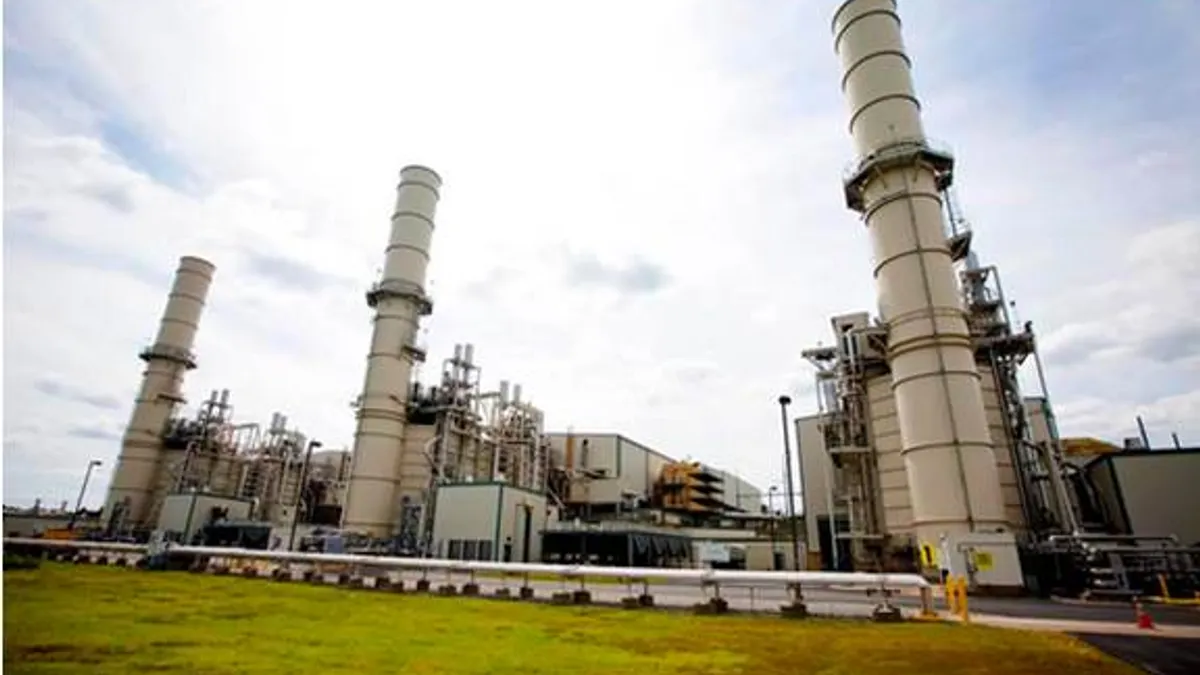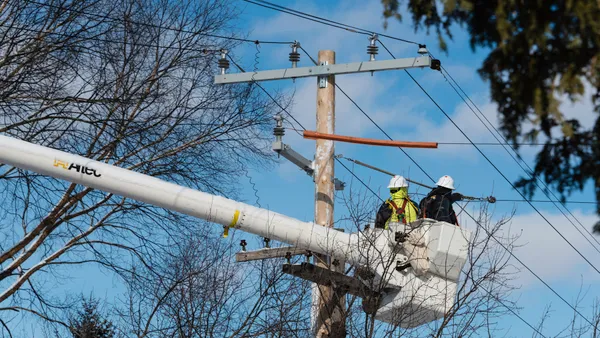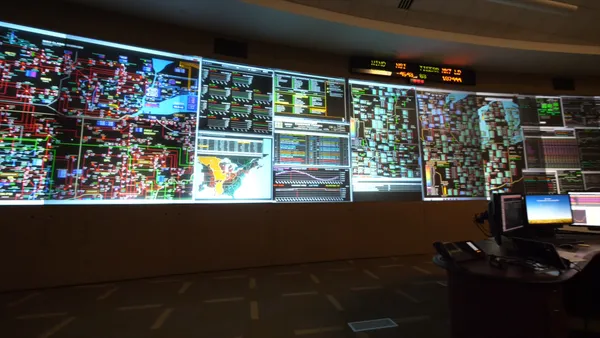Dive Brief:
- PJM Interconnection, the nation's largest grid operator, announced on Friday that it will pay $164.77 per megawatt day (MWd) to generators beginning in June 2018 as a result of a capacity auction held earlier this month. The new payment numbers represent a 37% increase over current payments, Bloomberg reports.
- The payments are a result of new performance requirements for PJM generators approved by federal regulators earlier this summer. Under the new stipulations, the grid operator can impose penalties of about $2,800 per MWh on generators that do not operate during emergency hours.
- The auction results were hailed as good news for existing generators, which stand to gain if they meet the stricter performance requirements. Three of Exelon's nuclear facilities, however, did not clear the auction, putting their futures in doubt.
Dive Insight:
PJM's new performance requirements, proposed last summer, are aimed at avoiding a repeat of the 2014 polar vortex, when frigid temperatures froze gas lines and impeded coal transportation, causing electricity prices to skyrocket for customers in the grid operator's territory.
Under the new plan, approved by FERC in June, generators will earn more money for reliable performance, but also face steeper penalties if they fail to run during emergency periods, such as severe weather events or when power demand is exceptionally high.
The results of the auction were about what industry observers expected. In two areas of the grid territory — Chicago and northern Illinois — capacity payments rose above $200 per MWd due to transmission constraints. The eastern edge of PJM — Philadelphia, New Jersey and the Delmarva Peninsula — also saw higher prices.
But while the auction results were hailed as good news for most existing generators, three of Exelon's nuclear plants — Oyster Creek, Quad Cities and Three Mile Island — did not clear the auction. It is expected that the utility will announce the closure of its Quad Cities facility later this year when it must inform PJM of its availability for future auctions, EnergyWire reports. Last year, Quad Cities lost about $350 million and Exelon has threatened to close it and two other Illinois nuclear facilities if lawmakers do not support them with taxpayer dollars, saying they are essential for reliability.
Capacity delivered from demand response resources, which FERC directed PJM to include in the auction last month, rose 1% to 11,084 megawatts. In all, PJM secured 166,837 MW of power supplies in the auction, down from 167,004 MW in last year's auction, in part due to a cut in the regional grid's demand forecast. PJM's reserve margin widened slightly to 19.8% from 19.7% in last year's auction, and new power plants — mostly gas generation — accounted for 2,919 MW in the auction, down from 5,927 MW last year.
Not everyone was pleased with the auction results, however. The Chicago-based consumer watchdog Citizens Utility Board estimated that typical ComEd customers in northern Illinois could pay nearly $100 more per year than they do now, with no assurance of bolstered reliability.
"This price spike is one more red flag that the rules governing the capacity auction open the door for power generators like Exelon, NRG and Dynegy to make windfall profits," the group said in a statement.














